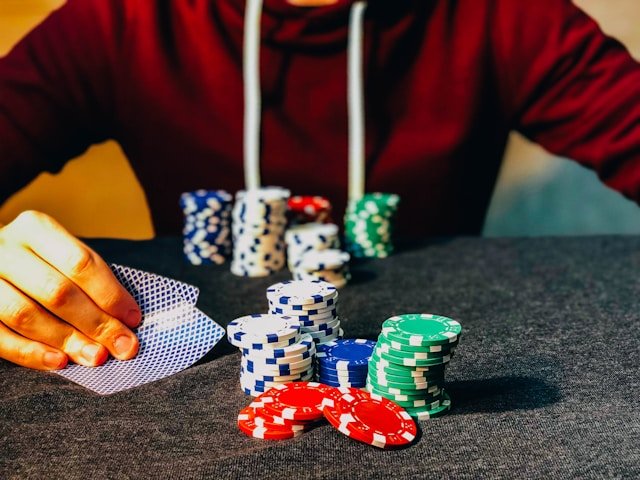
Addiction manifests in various forms, impacting individuals physically, mentally, and emotionally. While substance addictions, like those related to alcohol and drugs, are commonly acknowledged, behavioral addictions—such as gambling and internet usage—can also create significant disruption in lives.
To effectively identify early signs of addiction and seek appropriate help, it’s essential to understand the various types of addiction. Whether tied to substances or habitual behaviors, addiction can profoundly affect a person’s health, relationships, and everyday functioning.
This guide will delve into the different types of addiction, their development, and the recovery and support pathways available.
Let’s dive in!
Understanding the Different Types of Addiction
Addiction is a multifaceted issue that can touch people from diverse backgrounds. Recognizing the various forms of addiction is vital for spotting the signs and pursuing effective treatment. This guide will cover a range of addictions, from substance dependency to behavioral compulsions.
Defining Addiction
Addiction is a chronic condition defined by the compulsive need to pursue a substance or engage in a behavior despite facing negative consequences. It can alter brain chemistry, making impulse control a significant challenge. Addictions are generally classified into two main categories: substance-related and behavioral.
Categories of Addiction
Addiction can take many forms, with some being more prevalent than others. Here are several key types of addiction to be aware of:
Alcohol Dependency
Alcoholism, or alcohol use disorder, stands as one of the most common addictions globally. It features excessive drinking that often leads to physical dependence, emotional issues, and social repercussions. Symptoms can include cravings, loss of control, and withdrawal symptoms when not consuming alcohol.
Gambling Addiction
Problem gambling is a behavioral addiction that drives individuals to gamble despite experiencing adverse consequences. This addiction can culminate in financial disaster, strained relationships, and emotional turmoil. Individuals may engage in riskier bets, neglect their responsibilities, or hide their gambling activities.
Sexual Compulsion
Sex addiction is marked by compulsive sexual behaviors that disrupt daily life. This may include excessive pornography use, risky sexual encounters, or an inability to manage sexual urges. It significantly impacts personal relationships and mental health.
Cannabis Use Disorder
Though cannabis is often thought to be less addictive than other substances, some individuals do develop a dependency. Symptoms may include withdrawal effects such as irritability, anxiety, and sleep issues. Users may find it challenging to cut back even after recognizing the negative effects.
Cocaine Dependency
Cocaine is a potent stimulant that induces strong feelings of euphoria. Addiction can form rapidly, leading to physical dependence, mental health struggles, and severe social or financial repercussions. Users typically experience intense cravings and difficulty in quitting.
General Drug Addiction
Drug addiction covers a wide array of substances, ranging from illicit drugs like heroin and methamphetamine to legal ones like prescription medications and nicotine. Dependency can lead to substantial physical, emotional, and social harm, with withdrawal symptoms often hindering recovery.
Food Addiction
Food addiction relates to compulsive eating and an overwhelming inability to control food cravings. Individuals may excessively binge on unhealthy foods, leading to obesity, diabetes, and other health issues. Emotional triggers often play a significant role in this addiction.
Behavioural Dependencies
These addictions involve compulsive engagement in certain activities, despite facing negative outcomes. Unlike substance-related addictions, behavioral addictions stem from repeated activities that activate the brain’s reward pathways.
Video Game Compulsion
Video game addiction is increasingly relevant, especially among younger demographics. It encompasses excessive gaming that disrupts daily responsibilities, relationships, and routines. Signs include social withdrawal, neglecting personal hygiene, and mood changes when gaming is interrupted.
Addiction to Prescription Drugs
This form of addiction occurs when individuals misuse prescribed medications, including opioids, sedatives, and stimulants. Even medications administered by healthcare professionals can lead to dependence when misused. Prescription drug addiction often begins with legitimate pain management but can escalate into compulsive use.
Internet Compulsion
In today’s digital world, internet addiction has become increasingly prevalent. Individuals may obsess over social media, online gaming, or internet browsing, negatively affecting their personal and professional lives. This compulsion can lead to sleep disruptions, anxiety, and feelings of isolation.
Approaches to Addiction Treatment
Addressing addiction typically necessitates a blend of medical, psychological, and social support. Common treatment methods include:
Therapeutic Interventions
Therapeutic approaches might involve cognitive behavioral therapy (CBT), counseling, or support groups. These therapies assist individuals in identifying triggers and developing healthier coping strategies.
Medications
In certain cases, medications can be prescribed to alleviate withdrawal symptoms such as headaches, anxiety, and insomnia or to reduce cravings, making the cessation process more approachable and lowering chances of relapse.
Rehabilitation Programs
Both residential and outpatient rehabilitation programs offer structured support to those struggling with addiction. These programs typically include a combination of therapies, ranging from individual counseling to group therapy and skill development workshops.
Residential rehab provides a live-in environment with continuous care, ideal for those with severe addictions. Conversely, outpatient programs allow individuals to maintain daily responsibilities while attending treatment sessions.
The costs associated with rehabilitation services can vary and typically cover detoxification, withdrawal management, mental health counseling, and strategies to prevent relapse.
Peer Support Groups
Organizations such as Alcoholics Anonymous (AA), Narcotics Anonymous (NA), and Gamblers Anonymous (GA) provide community support for recovery. These groups create a safe space for individuals to share their experiences and receive encouragement from others facing similar struggles.
In Summary
Establishing healthy routines, engaging in new hobbies, and surrounding oneself with positive influences can significantly aid in recovery from addiction, regardless of its type.
If you or someone you care about is grappling with addiction, seeking professional help is crucial. With the right treatment and support, recovery is achievable for everyone.
Although the recovery journey may be long and demanding, surrounding yourself with supportive individuals makes overcoming challenges possible. Take it one day at a time, and keep your ultimate goal in sight – you can do this!







